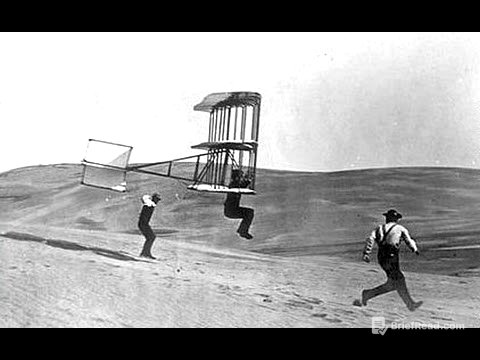TLDR;
Alright, so this video by Dave Asprey is all about creatine and how it's not just for bodybuilders, but can actually boost your brainpower, mood, bone health, and heart function. He busts some common myths about creatine, like it wrecking your kidneys or causing bloating. Turns out, it's a pretty safe and effective supplement for overall health and longevity. He talks about the history of creatine, how it works in your body, the right dosage, and even some biohacks to make it absorb better.
- Creatine is good for your brain, muscles, and overall energy levels.
- It's safe for most people, including women and older adults.
- Vegans and vegetarians might need it even more.
- There are ways to improve absorption, like taking it with carbs or in hot water.
Introduction to Creatine [0:00]
Dave Asprey introduces creatine as a supplement that's gaining popularity for its potential to improve health and longevity, not just for building muscle. He clarifies that creatine isn't a stimulant like caffeine. Your body makes about one gram of creatine per day in your liver, kidneys, and pancreas. Creatine can help protect your mitochondria, act as an antioxidant, and stabilize cell membranes, which is important for longevity. Asprey also mentions that creatine can increase short-term memory, potentially boosting IQ. He outlines what he'll cover in the video, including the history of creatine, how it works, dosage, and biohacks.
History and Myths of Creatine [5:01]
Asprey dives into the history of creatine, starting with its isolation from meat in 1832. He mentions that athletes started using it in the 90s, but it later became just another bodybuilding supplement due to some myths. One myth is that creatine damages your kidneys, but research shows that up to 10 grams a day has no adverse effects on healthy adults. Another myth is that it causes bloating and fat gain, but the initial weight gain is just water pulled into muscle cells. Finally, he addresses the myth that it's only for men, clarifying that women can experience similar benefits.
How Your Body Makes and Uses Creatine [7:20]
Dave explains that your body naturally makes about one gram of creatine per day if you're getting enough amino acids. Vegans might not be getting enough of these amino acids, so they might need even more creatine. He points out that you'd have to eat a lot of meat to get enough creatine from your diet alone. Vegetarians and vegans often have lower creatine stores, so they might see even greater benefits from supplementation. He suggests that people in India, where vegetarianism is common, might especially benefit from creatine.
Five Key Ways Creatine Fuels Your Mind and Body [8:54]
Asprey outlines five ways creatine provides energy. First, the phosphagen system uses phosphocreatine (PCR) as a backup battery for ATP, increasing sprint power. Second, the neuronal phosphagen system helps brain cells maintain ATP during mental activity, boosting cognitive function. A study showed that 20 grams a day of creatine improved working memory and intelligence test scores. Third, creatine draws water into cells, increasing cell volume and activating mTor, which regulates protein synthesis and muscle repair. Hydrated cells also resist heat and chemical stress better, potentially improving bone density. Fourth, creatine protects mitochondria and acts as an antioxidant, neutralizing free radicals and reducing oxidative damage. Finally, creatine helps with gene expression and long-term adaptation to stress, upregulating IGF-1 and increasing mTor. It also raises BDNF expression, facilitating new neural connections and learning.
Optimizing Creatine Absorption [16:25]
Dave shares two lesser-known ways to increase creatine absorption. First, take creatine with a little bit of sugar or any sweet carbohydrate, as glucose helps with uptake. Second, dissolve creatine in hot (but not boiling) water instead of just suspending the powder in a drink. He also mentions that taking creatine with 20 grams of dextrose can double muscle absorption via insulin pathways, but advises against excessive sugar intake.
Dosage and Types of Creatine [18:13]
Asprey discusses creatine dosage, saying that a loading phase isn't always necessary but can be helpful if you're tired or have a final exam coming up. A typical loading protocol is 20 grams a day (5 grams four times a day) for five days, followed by a maintenance dose of 3-5 grams a day. Some people experiment with higher doses. He recommends taking it in the morning and with protein and carbs, especially post-workout. Creatine monohydrate is the most common type, but creatine HCL is more soluble and may cause fewer GI issues.
Special Use Cases for Creatine [19:50]
Dave highlights special use cases where more creatine might be beneficial. Vegetarians and vegans with lower baseline creatine levels can see significant cognitive gains. Older adults need at least 3 grams a day to preserve lean mass, strength, and memory. People with neurological conditions might experience slower progression and reduced fatigue. Athletes in contact sports should take creatine to protect against brain injury. He also suggests that creatine might be safe and beneficial during pregnancy and nursing to reduce maternal fatigue and support fetal brain energy.
Real-World Biohacks with Creatine [21:29]
Asprey provides real-world biohacks for using creatine. For high-intensity interval training, take 5 grams pre- and post-workout. Students and cognitive professionals can take 5 grams in the morning with danger coffee for faster problem-solving and alertness. Shift workers can take 5 grams at the start of their shift for better reaction times and mood. Travelers can take 5 grams a day to reduce jet lag. People with social anxiety can take 5 grams before an event to reduce nervousness. And if you're hungover, 5 grams the morning after can reduce headache and brain fog.
Stacking Creatine for Maximum Results [23:21]
Dave discusses what to stack with creatine for better results. Carbs and protein can create an insulin spike that drives creatine uptake. Beta-alanine can enhance muscle buffering. A source of nitrate can improve blood flow and power output. Caffeine (like in danger coffee) can increase mental speed. He advises against energy drinks due to excessive caffeine.
Choosing the Right Creatine [24:50]
Asprey says any creatine will work, but plain old creatine monohydrate is effective. He warns about quality control and contamination issues, advising to watch out for added flavorings and fillers. Creapure micronized creatine monohydrate is the gold standard with the most studies behind it. He also mentions creatine HCL and a newer form called GAA creatine, which may have better absorption.
Precautions and Potential Side Effects [26:45]
Dave warns that high doses of creatine could deplete methyl donors, especially if you have MTHFR or methylation issues. Taking TMG or folinic acid can help. He also notes that some people experience sleep issues, which can be addressed by taking creatine in the morning and using folinic acid or TMG. Finally, he emphasizes the importance of drinking extra water with electrolytes when taking creatine.
Recap and Final Thoughts [28:33]
Asprey recaps the episode, highlighting that creatine is a universal energy buffer for muscle, brain, heart, bone, and the immune system. He recommends starting with 5 grams a day, loading if desired, and taking it with carbs and protein. He advises dissolving it in hot water or splitting doses to avoid GI issues. He also suggests stacking it with beta-alanine, N101, omega-3s, and caffeine. He concludes that creatine is a safe, versatile, and science-backed biohack that deserves its current spotlight.









